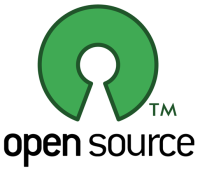 My trusty old Sony DSC-W1 is several years old by now and it does show when I compare my camera with those of my friends – and especially when I compare the resulting images. I’m pondering on getting a new one, but I’m struggling to find one that matches my criterias:
My trusty old Sony DSC-W1 is several years old by now and it does show when I compare my camera with those of my friends – and especially when I compare the resulting images. I’m pondering on getting a new one, but I’m struggling to find one that matches my criterias:
- (Ultra-) Compact. I want to be able to bring it with me easily, in a pocket or similar. Otherwise I end up not taking any photos at all… So it shouldn’t be any bigger than my existing really. I also enjoy and mostly do point-and-shoot style photographing.
- 3″ LCD. I got one of the first 2.5″ LCD cameras and I loved how the big screen makes photographing and viewing pics on it more fun. I’ve seen some cameras with >2.5″ screens and I think they look awesome.
- Image Stabilizer. Clearly (according to reviews) they can make a difference, especially with zoom or in low light conditions.
- Good low-light images (at least comparable to the excellent Fujifilm Finepix F31fd). It seems even the more recent Fujifilms has went downhill in that department, based on reviews I’ve read.
- I think I would prefer a camera that accepts SDHC cards so that I can go with 4GB or perhaps even 8GB at once, easily and cheaply.
And what contenders are there really? Lots of them, but I’ve found none that even reaches 4 out of 5 in this list! 🙁
Oh, and note that the number of pixels ain’t terribly important as long as they’re at 6+ something megapixels.
Suggestions anyone?

 Participating in and maintaining open source projects is great fun, much rewarding and very educating. One thing you always want is bug reports from users who suffer from problems, as you cannot fix problems unless you know they exist!
Participating in and maintaining open source projects is great fun, much rewarding and very educating. One thing you always want is bug reports from users who suffer from problems, as you cannot fix problems unless you know they exist!

 mailing list titled “Thoughts on Wget 1.x, 2.0“.
mailing list titled “Thoughts on Wget 1.x, 2.0“. I have one of these lovely little
I have one of these lovely little